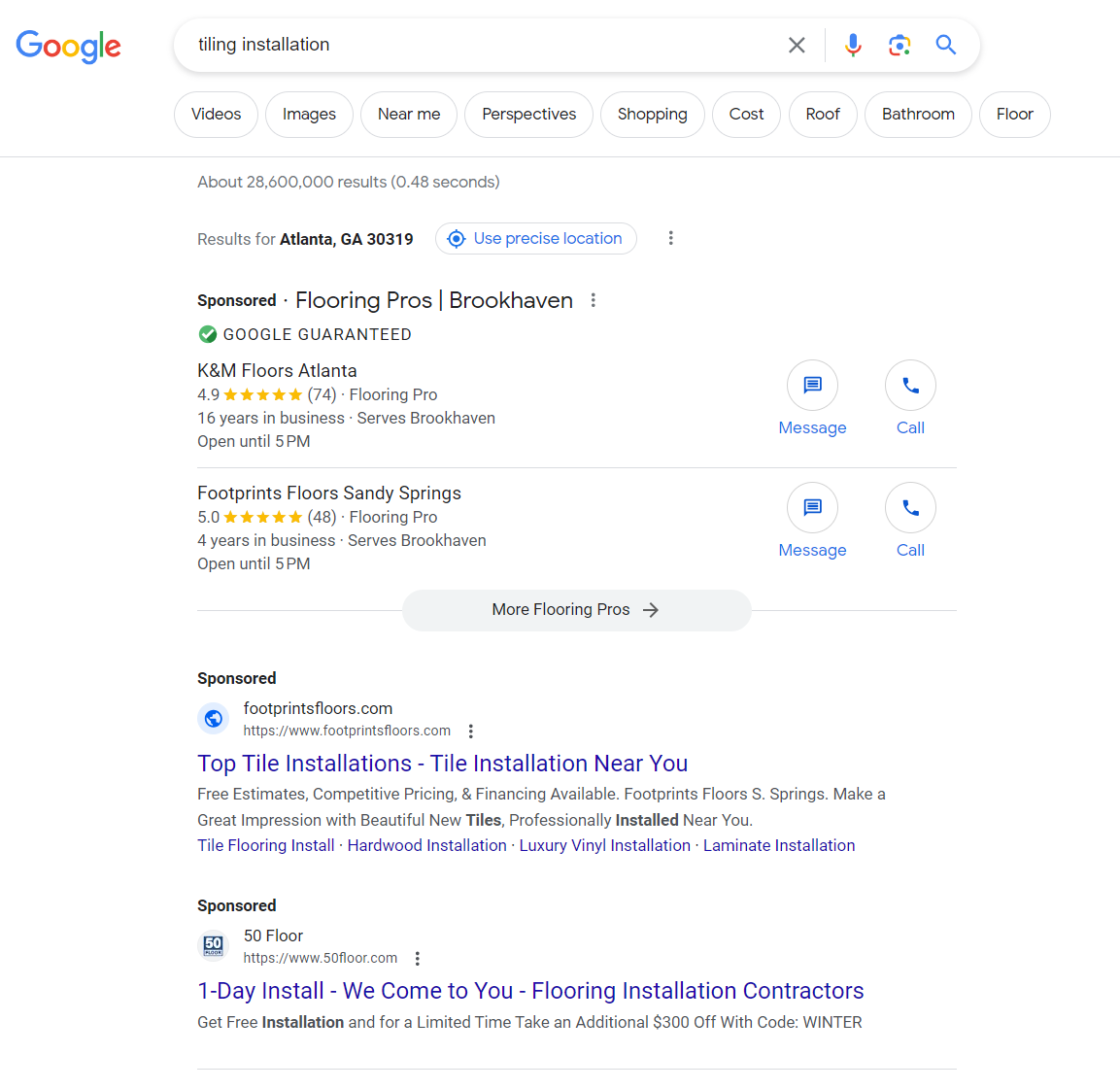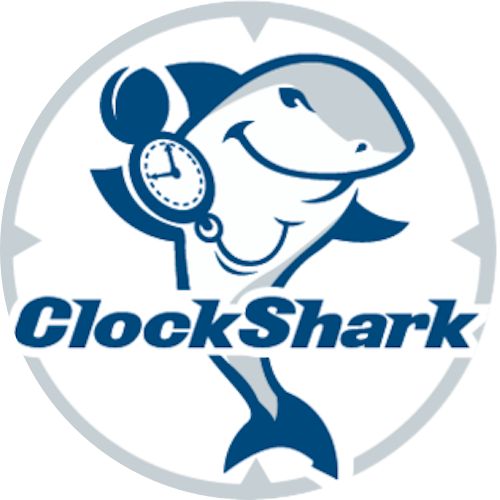No matter the scale of the job, all contractors have these questions while trying to run a successful project: How much material do I need? Am I getting the best price? How big does my crew need to be?
Marketing is all about knowing if your efforts are paying off, just like in construction. You might have used TV or radio ads, but they often leave you in the dark about who saw them and if they worked. Sound familiar?
That's where PPC (Pay-Per-Click) advertising comes in. It's not just a standalone solution; it can complement your existing marketing strategies by placing measurability and precision targeting at their core. Let’s explore what PPC is, why it will take your business to the next level, and how to get started.
What is PPC?
Pay Per Click (PPC) is a form of online advertising where the advertiser pays each time someone clicks on your ad. Unlike the broad reach of formats like radio and television, you get to set the specific types of users and parameters you want to target with your ads.
This type of marketing encompasses a variety of platforms, such as paid search advertising (like ads you see at the top of search results on Google and Bing) or paid social media (like in your Facebook or Instagram feed).
Each platform has its own way of “bidding” on these clicks. Think of PPC advertising like an auction. These platforms run auctions whenever someone searches for or visits a page that could display ads. You choose what qualifies your ad to be shown in the auction and how much to pay for it.
The search engine or platform looks at all the ads that qualify and chooses the most relevant bidder to display. So the higher you bid, the more likely your ad will be shown. But it's not just about the bid—the relevance and quality of your ad also matter. If your ad is more relevant and engaging, you might pay less and still get a good spot.
Why is PPC so great for construction trades?
PPC for contractors can be a powerful strategy to target potential customers actively searching for your services.
You may be thinking, why pay for something that may show up on Google or in my feed anyway? Unlike organic search results or social feeds that take time to establish notoriety, PPC ads can appear prominently at the top of search results or in someone's feed, ensuring instant visibility. Claiming the prime real estate at the top of the page on these platforms is vital, as it can become quite crowded.

For example, say someone searches for “tiling installation” on Google. Your website may show up on the page, but your competitor’s ad shows up higher than you, prominently at the top of the page. This person proceeds to click on your competitor's search ad, and you lose a potential customer despite your website showing up on Google organically.
On top of targeting specific customers and immediate visibility, PPC allows you to control your budget, as you only pay when someone clicks on your ad. This flexibility means you are the one in control of your spending.
How would I get started?
Now that we've covered why, let's break down the steps you should consider when diving into launching PPC construction ads.
1. Identify your goals and budget
Before launching a PPC campaign, ask yourself: What do you want to achieve or measure? Do you want more requests for remodeling projects? Or perhaps attracting clients to fill out a form for new builds? How much money do you want to set aside for this?
Depending on what you answer, this will guide you to what form of bidding to use on the platform. Bidding typically ladders up into two different categories: visibility (like the maximum number of people seeing the ad) or leads (like form fills or quotes). For more information on specific bidding types, places like Google and Facebook have useful guides detailing what their bidding strategies are and which would be aligned with your goals.
By having clear goals set prior to launching, you set a good foundation to later measure your success.
2. Do your research
Keywords and customer profiles are the cornerstones of PPC success. Put yourself in your customer's shoes. Some questions to ask yourself:
- Customers: What terms would they use when searching for your services? What professions or ages are my ideal customers? What are they interested in? What stage of the buying process are they in?
- Competition: What advertising are they doing? What are their services, and how do they differentiate from yours? Do they offer any special incentives, like a discount or free consultation?
- Website: How many people are going to your site? What are they doing when they get there? Is your website easy to navigate?
Utilizing different tools can help with some of these questions. Google Keyword Planner can identify keywords and provide estimates on reach and spending. Google Analytics can provide the number of people who are visiting your website, the pages they are browsing, or how many users are converting to a lead.
To get a good grasp on your customers, don't be afraid to survey your current customers. Once you have a comprehensive understanding of the above, use that to build the foundation of your campaigns.
3. Craft compelling ads
Your ad should speak directly to your potential customers. Highlight what sets your business apart, whether it's quality craftsmanship, timely project completion, or competitive pricing.
For a search ad, make sure your headlines feature that unique selling point. For a video ad, ensure you’re using compelling and high-quality video.
4. Landing pages matter
When someone clicks on your ad, where do they go on your website? Ensure your website landing page aligns with the ad's message and provides clear information, making it easy for visitors to take action, whether it's requesting a quote or exploring your portfolio.
5. Monitoring and optimization
Once your campaigns are live, don't just sit back and relax. Monitor their performance regularly to see what may be eating up costs, which ads are gaining attention, and where you should adjust your bidding targets. Adjust your bids, tweak ad copy, or refine keywords based on what's working and what's not.
6. Consider professional help
The above steps may be unattainable due to time or bandwidth. If so, bringing in outside help for PPC can be a smart move, especially if you're new to it or don't have the time to manage campaigns yourself. Consider partnering with a digital marketing agency or consultant. They can help you navigate the nuances and optimize your campaigns so you can focus on your current jobs.
Which type of PPC should I run?
Now that we have touched on the generals of PPC, you may be wondering what the best advertising for construction is and which platforms would be the best fit. First, you must research your consumers to determine if paid search or paid social would be the best platform. Sometimes it's both!
Put yourself in the position of a buyer. For example, imagine you are buying a new power tool for your business:
- Awareness stage: This is when you realize you need something, but you're not exactly sure what. You might feel the need for better tools but haven't pinpointed the exact type or brand.
- Consideration stage: You're exploring your options. You're researching different types of power tools—maybe comparing brands, reading reviews, and figuring out which features matter most to you.
- Decision stage: Finally, you're ready to pick. You've done your research, and now you're choosing the specific power tool that suits your needs best.
Paid social best suits a consumer around the awareness or consideration stage, while paid search sits between the consideration and decision stages. Google ads for construction companies are a perfect first step into PPC advertising, as the platform is a large network and has great flexibility when it comes to budgeting. Facebook ads are also great for the visual component, as construction projects often thrive on visuals to show their work. Both are great for reaching potential customers, just in different ways and at different moments in their decision-making process. Let’s go over the pros and cons of each.
Paid search advertising
Pros:
- Precise targeting: Targets customers based on what they’re actively searching for, like "renovation contractors" or "general contractors."
- Immediate visibility: This ensures ads are seen by those actively seeking your services.
- Local market focus: Ability to showcase ads specifically in the local area.
- Flexibility: It offers a wide network and budget flexibility, making it ideal for PPC construction.
Cons:
- Competitive market: High competition for popular keywords can increase costs.
- Limited to search intent: Only reaches customers who are actively searching for specific services.
Paid social media advertising
Pros:
- Visual engagement: Ideal for showcasing visual content like before-and-after images and project portfolios.
- Demographic targeting: Extensive user data enables targeting job titles, professions, locations, or ages.
- Broader reach: Can reach potential customers who may not be actively searching for construction services but are interested.
Cons:
- Requires engaging content: Demands high-quality, engaging visual content to capture attention.
- Less intent-focused: Users on social platforms may not have immediate intent to purchase or hire services.
Combining the two: Paid search + paid social
Paid search advertising paired with paid social media advertising provides a solid foundation, and most businesses do a combination of the two of these for their PPC strategies.
Pros:
- Comprehensive coverage: Covers both users with immediate intent (search) and those who might be interested (social media).
- Holistic marketing: Increases your brand visibility and recognition across multiple platforms and stages, guiding people from awareness to the decision buying stage.
Cons:
- Resource intensive: Managing campaigns across multiple platforms requires more time and resources.
- Complex strategy: Requires a more nuanced understanding of different platforms and audience behaviors.
Getting started with PPC: Your toolbox for success
PPC stands as a powerful tool for construction trade businesses. By targeting the right audience with the right message at the right time, you can elevate your online presence, attract new customers, and grow your business.
Remember, while PPC offers immediate visibility, it's essential to approach it strategically. Start small, learn from your data, and refine your approach and goals as you go.
Want to streamline your workflow and free up time for what you do best? Check out our article on the best time-tracking app for construction and discover how technology can help you build a strong foundation for your business success.








